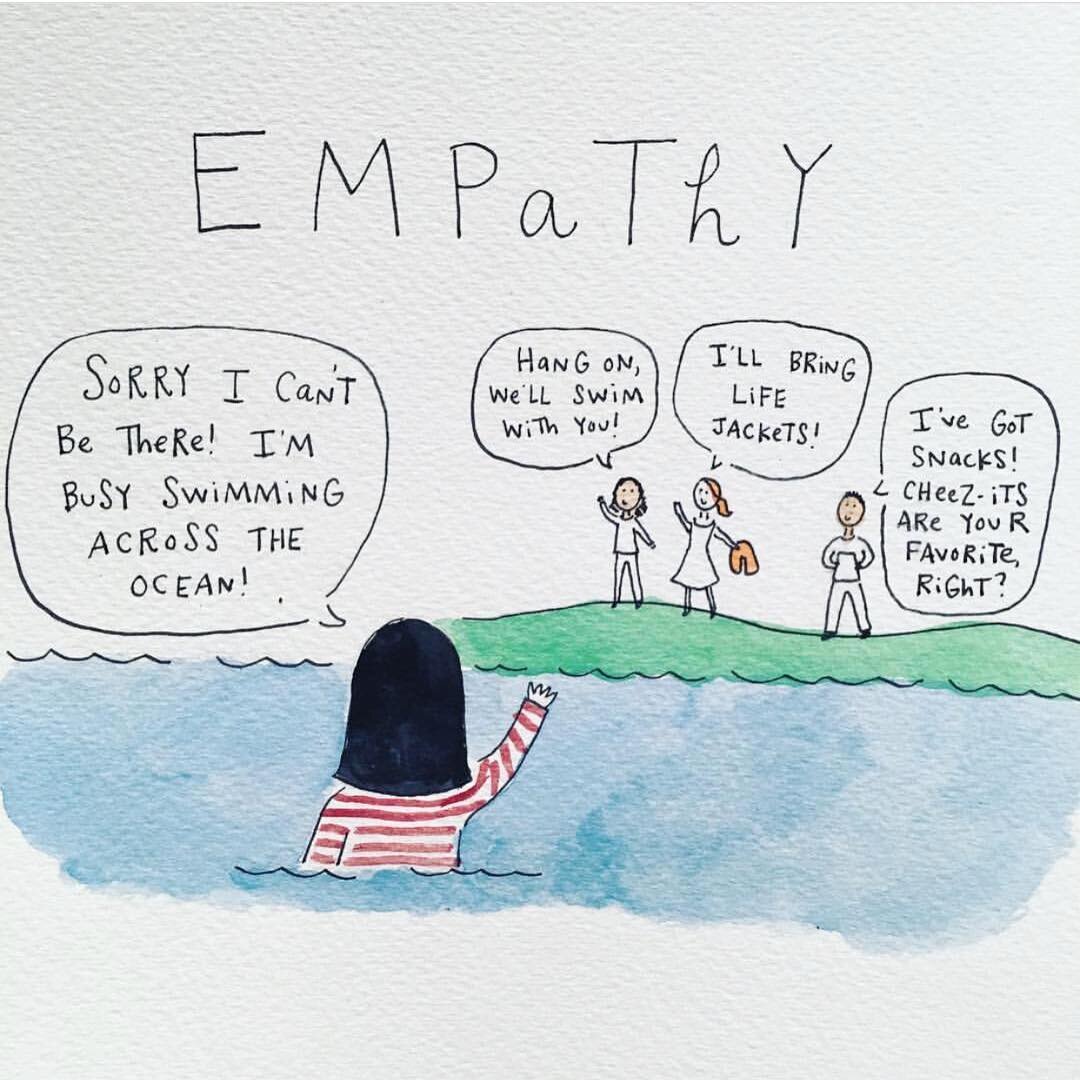Creating a Culture of Empathy
Innovation is having its moment in education, and for good reason. There’s what feels like an abundance of new ideas, approaches, and thoughts cropping up around the country. There’s a movement; a widespread urgency that the tide needs to shift because traditional education, the system of it, has not made progress like we’ve seen elsewhere.

ILLUSTRATION BY ARTIST MARI ANDREW.
As a new mother I’ve become, maybe more than ever, increasingly aware of the few options for deep, creative, extreme learning for my daughter in Harrisburg, Pennsylvania where we live. A smallish city, smack in the middle of two big ones, sitting along the Susquehanna River, seems to be growing in so many ways, but our city schools are not. We need innovation here, for sure. But I think we need something else too. Here and everywhere. Now more than ever. We need to nurture a culture of empathy.
I stumbled on this beautiful illustration from Mari Andrew earlier this month. She’s a writer and an artist, using watercolors to give shape to ideas and feelings that are often hard to articulate. She’s a poet, really. And her poetry cracked open a thought that’s been tumbling around in my mind about empathy. Because as Sandy Speicher, managing director at IDEO says, rethinking the system of education is like saying we want to “redesign commerce.” It’s so damn big. It’s a complex, certainly not straightforward, undertaking, and in my half-a-decade at 2Rev I’ve seen how this design and renewal has happened in big and small ways. And if you unearth and dig out what’s at the heart of these models of change, you find new ways of thinking, approaches, curriculum, content, and structures, for sure. But Underneath THAT are human beings and relationships. (Like Speicher said in another piece I loved, education is a people-based system. Something all educators and kids already intuitively know.) And inside healthy relationships, the connection between us, is empathy. Really being able to be present and bear witness to each others’ experiences.
Doing this might be one of the most important parts of making change in education thrive. In a recent conversation online, Jay Dockweiler, from Henry County Public Schools (who we’re working with through the Assessment for Learning Project), captured perfectly the why behind a culture of empathy. He wrote in a reflection, “In our work, we are always discussing educating students so they are ready to make the huge life transition from high school to college and career. However, to this point, we have not discussed nearly enough, or nearly as often, the huge life transition teachers experience when they change in an instant from a lifetime of traditional education (schooling) to the very different perspective and set of practices we now place under the umbrella of 'Personalized Learning.' Even when we do think about the transition happening in a school, most of our discussion and support is directed toward the building leader and focused on ‘managing change’ as opposed to specifically caring for the souls of the adults who are experiencing a life transition, just as difficult and impacting as the shift students experience from high school to college.” Caring for the souls. Tending to people’s hearts and minds, listening closely (really listening, and not waiting to speak, or checking your email, or thinking about the next call or meeting you have), supporting their growth, are the actions of empathy.
I’ve seen this servantship of empathy take on a richer meaning lately in our projects at 2Rev through our coaching model. My teammates Brigid, Jim, Ali, and Ami have led us down this road. Each of them are seasoned educators who we are lucky enough to have in our midst, and in the past few years their genius and love for the art and science of teaching has been applied to supporting educators as they design and launch new innovations to radically change the shape, and feel, and experience of learning for kids. They coach and mentor teachers and leaders from around our country, and when I hear the stories of their journeys with our partners it reminds me exactly of this art from Andrew. A teacher says they are struggling with implementing project-based learning with their fifth graders, Ali heads out to swim with her, Jim and Ami get snacks, and Brigid grabs the life jacket. Because change is hard and it requires renewal and to be renewed means you need to have people helping and swimming with you.
Empathy is action, and we can cultivate it in all of our moments as we go about changing the paradigm of this system. Over the next few months, I hope to map out and consider what qualities make up a culture of empathy in communities and then how to build and sustain it. Until then, I’ll listen closely when my teammates tell me their stories, and I’ll have snacks, my swimsuit, and life jackets ready.
